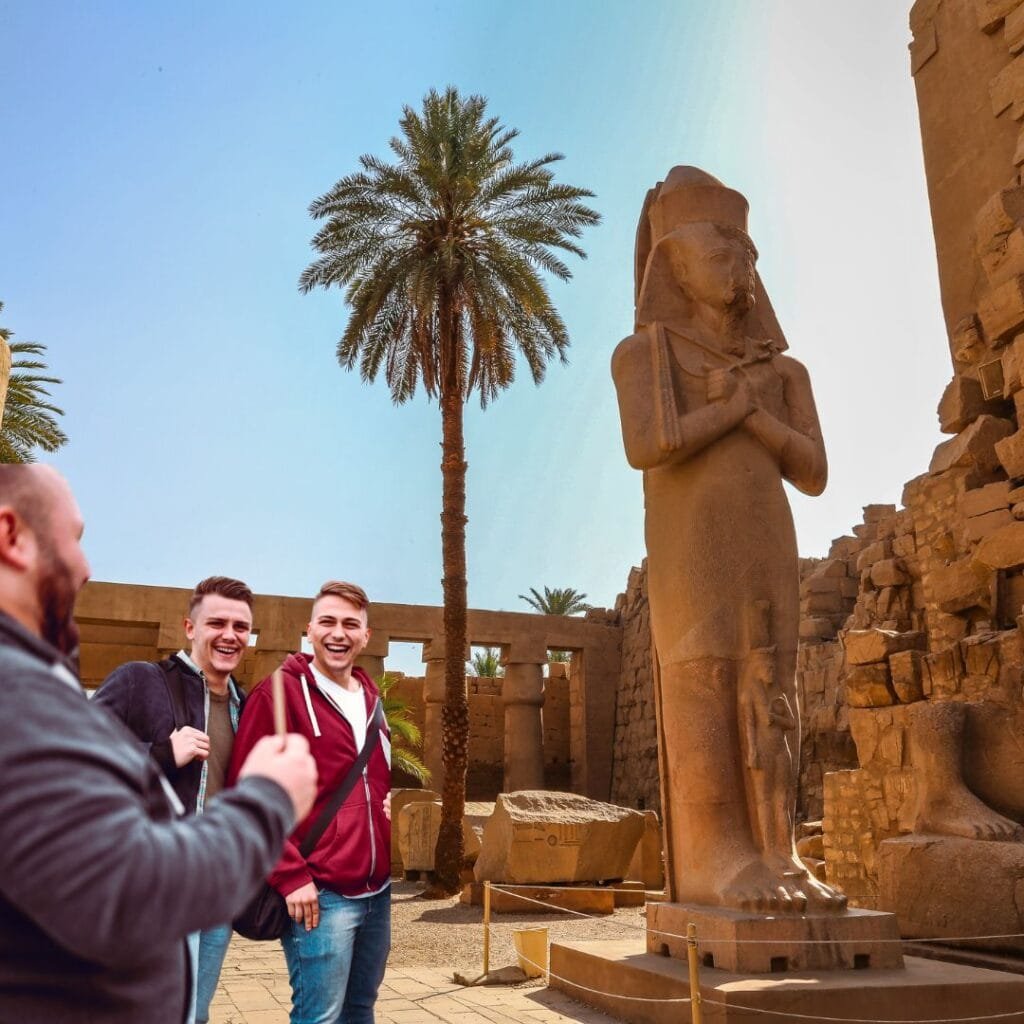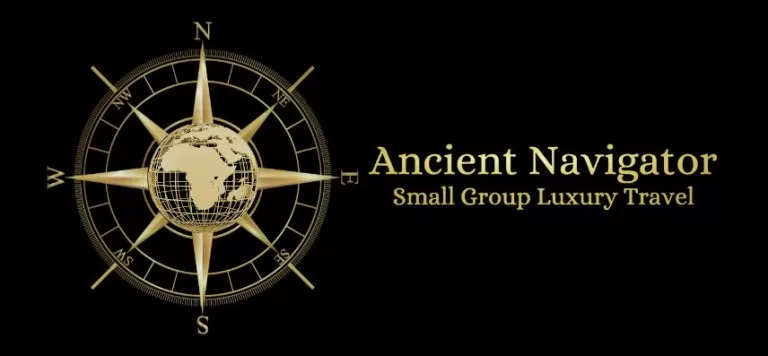Do You Need a Tour Guide in Egypt? Pros, Cons & Tips
Table of Contents
Why This Question Matters
Egypt, the land of pharaohs, pyramids, and unparalleled history, attracts millions of travelers each year. Whether you’re standing in awe before the Great Pyramid of Giza, sailing down the Nile, or wandering through the ancient temples of Luxor, you may wonder: Do I need a tour guide, or can I explore on my own?
This decision can make or break your trip. While some travelers prefer the freedom of solo exploration, others thrive on the insights and convenience that a knowledgeable guide provides. So, should you hire a guide in Egypt? Let’s break it down.
Key Takeaways:
A tour guide enhances your experience with expert knowledge and local insights.
Hiring a guide saves time, provides security, and helps navigate cultural differences.
Independent travel is possible but requires preparation and an adventurous spirit.
There’s a middle ground: guided day tours combined with independent exploration.

The Benefits of Hiring a Tour Guide
1. Deep Historical and Cultural Context
Egypt is a historian’s paradise, but without a guide, you might miss the fascinating stories behind each monument. Guides bring sites to life, providing context beyond the textbook descriptions. Imagine standing before the Sphinx, learning its legends, or exploring Karnak Temple while hearing tales of ancient rituals.
Example: Instead of simply seeing the Valley of the Kings, a guide can explain the intricate symbolism within the tombs and the mysteries surrounding King Tutankhamun.
2. Hassle-Free Travel and Time Efficiency
Navigating Egypt’s busy streets, long entrance lines, and chaotic markets can be overwhelming. A guide takes care of logistics, from purchasing tickets to avoiding crowds. If your time is limited, this efficiency is priceless.
Example: With a guide, you can maximize your day in Cairo—seeing the Pyramids, the Egyptian Museum, and Khan El Khalili market without wasting time figuring out transportation.
3. Language Barrier and Local Interaction
While many Egyptians speak English, Arabic is the dominant language. A guide acts as a translator, ensuring you don’t get lost in translation. This is especially helpful when bargaining in souks or ordering food in local eateries.
Example: A guide can negotiate fair prices at markets, preventing tourist scams.
4. Enhanced Safety and Security
Egypt is generally safe for tourists, but petty scams and cultural misunderstandings can occur. A guide helps you navigate these issues, ensuring a stress-free experience.
Example: At sites like Giza, where touts aggressively offer camel rides, a guide can handle these interactions smoothly.
5. Exclusive Access and Unique Experiences
Some sites offer exclusive access to guides, and local connections can unlock hidden gems. Want to explore a lesser-known tomb? Or experience a traditional Nubian village? A guide can make it happen.
Example: Private guides can arrange after-hours visits to certain temples for a crowd-free experience.
When You Might Not Need a Tour Guide
1. You Prefer Independent Exploration
If you love spontaneity, getting lost in new places, and figuring things out on your own, self-guided travel may be for you. Egypt’s major attractions have signs in English, and apps like Google Maps and audio guides help with navigation.
Example: Walking around downtown Cairo, exploring street food spots, and discovering hidden alleyways without a set itinerary.
2. You’re on a Tight Budget
Private guides and organized tours can be costly. If you’re backpacking or traveling on a strict budget, DIY exploration with guidebooks and online research can save money.
Example: Using public transportation to visit Giza and purchasing an audio guide for the Egyptian Museum instead of hiring a guide.
3. Major Sites Have Ample Information
Attractions like the Grand Egyptian Museum (once fully open) and major temples have extensive signage. If you’re comfortable reading and researching, you might not need a guide for these locations.
Example: The Pyramids of Giza have plenty of online resources, allowing independent travelers to appreciate their grandeur without a guide.
The Middle Ground: Combining Guided and Independent Travel
Many travelers opt for a mix—hiring guides for specific sites while exploring others independently. This approach balances cost, convenience, and personal experience.
Best Places to Have a Guide:
Luxor & the Valley of the Kings: Deep historical significance and hidden tombs benefit from guided explanations.
Aswan & Abu Simbel: Long distances and cultural nuances make a guide valuable.
Cairo’s Islamic & Coptic Districts: Local insights bring these historical areas to life.
Best Places to Explore on Your Own:
Giza Pyramids & Sphinx: If you research beforehand, you can enjoy the site independently.
Nile Corniche & Downtown Cairo: Safe areas to explore local culture and street life.
Alexandria: Easy to navigate with some prior research.
How to Choose the Right Tour Guide
Look for Licensed Guides – Ensure they have official certification from Egypt’s Ministry of Tourism.
Read Reviews & Get Recommendations – Platforms like TripAdvisor, Viator, and local forums help find reputable guides.
Clarify Costs & Inclusions – Know what’s covered (transportation, entry fees, tips) to avoid hidden charges.
Choose Private vs. Group Tours – Private tours offer customization, while group tours save money.

Should You Get a Tour Guide in Egypt?
There’s no one-size-fits-all answer. If you crave deep cultural insights, efficiency, and local expertise, a guide is invaluable. If you’re adventurous, enjoy solo travel, or are on a tight budget, independent exploration is doable.
Best Strategy? Mix both—hire a guide for complex sites and explore simpler locations solo.
Planning a trip to Egypt? Share your thoughts below! Have you traveled with or without a guide? What worked best for you? Let’s discuss!
Join our Email List
Past Blog Posts

Planning a Trip to Egypt? Here’s How Long You Need
Think you can “do” Egypt in 3 days? Think again. From ancient tombs to Nile-side secrets, this guide reveals why the magic of Egypt demands more than a layover—and shows you exactly how many days you really need to make it unforgettable. Don’t book that flight until you read this.

How Far Does $100 Go in Egypt?
Think $100 won’t get you far? In Egypt, it’s a game-changer. From luxury hotels to mouthwatering meals and ancient wonders, see how far your dollar really goes. This guide breaks down real costs, insider tips, and jaw-dropping experiences you can afford—without breaking the bank.

Private Egyptologist Tours: Unlock Egypt’s Hidden Secrets in Luxury
Step beyond the velvet ropes of Egypt’s most iconic sites. With a private Egyptologist as your guide, you’ll uncover hidden chambers, untold stories, and experience ancient wonders far from the tourist crowds. This is discovery at its most exclusive—where history meets luxury.

















